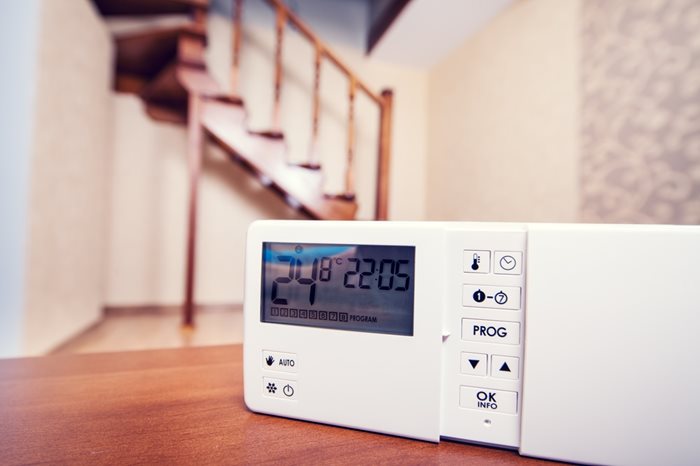Smart meter owners report higher, not lower, bills

|
| Having a smart meter installed at home very seldom means lower energy bills, according to new survey findings published on April 2, 2019 by electrotechnical trade body the Electrical Contractors' Association (ECA). |
In the ECA’s recent YouGov survey of adults who are eligible for a smart meter, just 1 in 14 respondents with a smart meter (7%) said that having one had reduced their energy bills, while 1 in 11 (9%) said they had increased. This is despite 1 in 4 (23%) reporting that the main reason for having a smart meter installed was to reduce their energy bills.
Overall, nearly half of respondents (47%) said they were ‘very unlikely’ to have a smart meter installed during the next 12 months, with 20% ‘fairly unlikely’ to do so. Just 5% of respondents said they were ‘very likely’ to do so, with a further 13% ‘fairly likely’ to have one installed in the next year.
[edit] ECA comment
ECA Energy Advisor Luke Osborne commented: “These ECA findings suggest that smart meter users seldom report lower energy bills – which seems at odds with the government’s ‘save money’ message.
“Smart meters can play a role in stimulating a shift towards a lower-carbon future. However, the government needs to do far more to incentivise change and explain the benefits of using smart meters if they are to increase consumer confidence and take-up in the near future.”
While 61% of smart meter owners reported that they had ‘no issues’ with their smart meter, almost half (45%) reported they had experienced ‘no benefits’ in having one. The benefit that came out on top for respondents with a smart meter was ‘more accurate billing’ (29%), while 1 in 11 (9%) cited ‘connectivity issues’ as a problem.
Furthermore, fear of data breaches and cyber attacks came out as the top reason (30% of respondents) for not getting a smart meter, among those unlikely to do so. However, of those with a smart meter, less than 1% reported any issue with data security or hacking.
Luke Osborne added: “Public awareness of data security has increased significantly recently. These ECA findings show that the government must do more to explain to the public why smart meters do not present a security risk from hacking or other data breaches.”
Less than 1 in 3 adults surveyed who are eligible for a smart meter (32%) have a smart meter installed, despite a government commitment for all UK homes to have one by 2020.
[edit] About this article
This article was written by the Electrical Contractors’ Association (ECA) and first appeared on its website in April 2019. It can be accessed here.
[edit] Related articles on Designing Buildings Wiki
- Building management systems.
- Data from smart energy meters.
- Electromagnetic meters.
- European connected and smart home market.
- Internet of things.
- Kilowatt hour.
- Smart buildings.
- Smart meter.
- Smart Meters Bill.
- Smart technology.
- The future of electricity in domestic buildings, a review.
--ECA
Featured articles and news
Apprenticeships and the responsibility we share
Perspectives from the CIOB President as National Apprentice Week comes to a close.
The first line of defence against rain, wind and snow.
Building Safety recap January, 2026
What we missed at the end of last year, and at the start of this...
National Apprenticeship Week 2026, 9-15 Feb
Shining a light on the positive impacts for businesses, their apprentices and the wider economy alike.
Applications and benefits of acoustic flooring
From commercial to retail.
From solid to sprung and ribbed to raised.
Strengthening industry collaboration in Hong Kong
Hong Kong Institute of Construction and The Chartered Institute of Building sign Memorandum of Understanding.
A detailed description from the experts at Cornish Lime.
IHBC planning for growth with corporate plan development
Grow with the Institute by volunteering and CP25 consultation.
Connecting ambition and action for designers and specifiers.
Electrical skills gap deepens as apprenticeship starts fall despite surging demand says ECA.
Built environment bodies deepen joint action on EDI
B.E.Inclusive initiative agree next phase of joint equity, diversity and inclusion (EDI) action plan.
Recognising culture as key to sustainable economic growth
Creative UK Provocation paper: Culture as Growth Infrastructure.
Futurebuild and UK Construction Week London Unite
Creating the UK’s Built Environment Super Event and over 25 other key partnerships.
Welsh and Scottish 2026 elections
Manifestos for the built environment for upcoming same May day elections.
Advancing BIM education with a competency framework
“We don’t need people who can just draw in 3D. We need people who can think in data.”






















